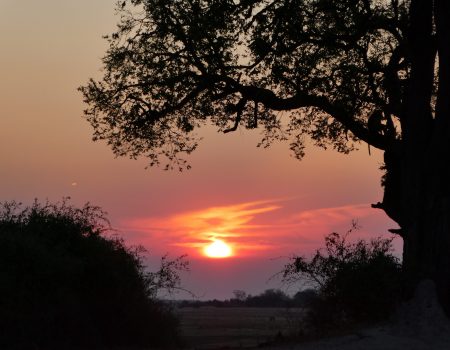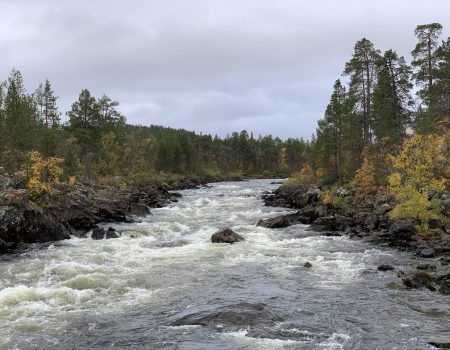From a spiritual point of view, in order to achieve personal growth, you must have a passionate desire for enlightenment that is completely selfless. If your passion has anything to do with you, then certainly you can succeed in your goals, but there will be negative effects from having desires. For the goal to be spiritual, you must remove yourself first.
Desire is a car. What kind of car, electric, gas or diesel, each one makes a different impact on the environment. Desire is a vehicle that takes you to your destination without damage or, like a bulldozer destroys everything in its path. The type of car required for your desire is determined by the destination you have set.
Desire that is poison is for things that you feel you must have, but when you have them, they fail to give any long lasting satisfaction and soon you need more. It is similar to a drug addict who needs stronger or bigger doses of the drug or an extreme sportsperson seeking more dangerous stunts. The desire for enlightenment is a different desire. It seeks only one end, a desire to have no more desires. That fire quenches itself. It is a matter of the inward and outward goal. What is the real goal behind the desire determines the type of emotion that is labelled as desire.
Passion and desires turn to poison when attachment gets mixed in. Attachment is bad if you cannot let go of something even after it is clear that you cannot have it. Or, if you have it, there is fear of losing it that negatively effects your life. Attachment in a negative sense spiritually speaking, is being controlled by the subject of your desires. Desires normally must have some form of attachment to them, as the attachment to a goal or item creates its desire.
When desires are considered negative or poison as some teachings say, it is not the nature of ‘desire’, nor is it the item of the desire, but rather the poison is the attachment to the goal that causes pain if the goal is not achieved. A goal can be to acquire or to maintain something already in your possession. Attachment in that way causes fear, fear causes a mind in unrest which prevents objective reason and balance.
Desires are harmless if there is no attachment. However it is far too easy to convince yourself that you are not attached when you really are. And so to prevent that self lying, all desires have been deemed poisonous to the spiritual seeker.
Passion is power. Power can be good or bad. It takes a catalyst to make it one way or the other.
This universe operates on set rules with mathematical precision, and that is the method by which the spiritual and mystical realms also function, set rules of mathematical and scientific precision. Every thing requires a catalyst to put it in motion, the direction of that motion is determined by the catalyst.
It is written that Buddha would produce a puddle of sweat while meditating, such was the intensity of his desire. Buddha was filled with passion which was a burning desire to end suffering caused by rebirth. That passion was the power behind his will to do what he did in his mystical training. That is the same passion and power behind any great human achievement.
Desire is passion, passion is emotion, as is compassion. Buddha was filled with compassion for all beings and that drove him out of the palace and into the jungle to pursue his quest. Emotion is part of the essence of our Being, or Soul. Without emotion, we have no compassion, and so we can see that Buddha was filled with emotion, and passion is inseparable from emotion.
The catalyst in Buddha was his desire to end suffering for all beings. That underlying goal made his passion a detached power. If the Buddha’s underlying goal was to have more wealth, then that desire becomes the poison he warned against. But his passion was to have ‘nothing’. There was no material goal, nor was there a personal goal for himself alone. His goal was to find an end of suffering for ALL beings. Passion turns to poison when it serves YOU. Hitler had his own catalyst which gave him tremendous power to do what he did. All people with an intense emotional passion that becomes power have achieved their goals, for good or bad.
The difference is the catalyst. Is it for me or for others? Am I attached to the goal of my passion so that if I lose the object of my goal, or fear losing it by any means, even my own death, that I cannot bear its loss? That way the power of the passion is driven by a catalyst that makes it destructive. The power of the passion controls me.
If you have passion for a particular goal, yet you can walk away from the goal at any time without regret, then the catalyst lets the power live on its own and although you control and command it, you are not effected by it. My personal passion was to end suffering of all people. I knew that when I was less than 5 years old, long before I ever heard of Buddha. That became a passion, but to achieve it, the process determined I needed money. That became the goal. I had to keep the passion and the catalyst in the forefront of my mind so that the goal of my having money would not take over and become a new self-centred catalyst. In order to maintain a correct catalyst, I had to have the money, the car, home, property and all things, only to leave them, mostly by choice. I chose to sell the perfect property that I owned, then find another and walk away from that, five times in all. I achieved my goals for money and possessions, then I gave them away by choice.
The danger is clear, the challenge is immense. The work is to have passion for a goal and remain detached. Do not have passions and desires that are part of you, but have them as you have your outer layer of skin. Humans have several layers of skin, we believe our skin to be us, yet the outer layer can get cut or peeled off without any feeling of pain or even being noticed. It is when the inner layers are cut that we feel pain. And so, we forget that the outer layer is not us. We become confused and attached to it as if we are it. Peel that layer of skin off, like after a sunburn and you can hold it, and toss it away without any thought or feeling, yet a day or minute earlier, that was you.
This is a good analogy for the inward and outward goal. We have an inward goal when we are young, close to our heart, something we cherished as much as our life itself. But time went on and in the usual way the world works, our inward goal was trampled upon, ridiculed or professed as impossible by the ones we trusted. That broke our spirit and we replaced the inward goal with outward goals. Like the outer layer of skin, the outward goals can get trampled or never achieved without any pain or feeling. Our self preservation instinct, seek pleasure and avoid pain, has prevented us from having strong and deep inward goals that come from the deepest part of our soul, our very essence. We live with outer goals alone, attached to the ego and filled with desires that are poison to our inner balance and spiritual peace. The longer we live like this, the weaker our essence and passion for life becomes.
The catalyst is the inward goal. The will power must be developed so that the inward goal can be kept separate from the outward goal. The inner layers of skin are not the outer layer, they are kept separate by the mathematical precision of the universe and nature itself. The human mind is what gets them confused through its limited effort of thought and disregard for the reality of impermanence.
We will not live forever, but we do not like to think about that. It is the disregard for our ultimate destiny as a human being that twists our mind away from being able to have a catalyst that will allow us to use the power safely. Because of this, nature has prevented us from being able to use that power and has robbed us of its trigger, passion. Our world destroys passion except in a very few. Look around and get an objective view of how many people are truly passionate, full of energy and exude a certain something that anyone can sense.
The training to create a catalyst and power intentionally that will be harmless to the possessor of the power is hidden in mystical training. Mystical because it is a hidden mystery, taught and given only to those who advance and prove themselves worthy step by step, being given another step only after they have passed the one below. In this way mysticism has kept the power safe, but there are always those in whom it is born naturally and cannot be contained, or those who advance and become corrupted.
Simply put, passion becomes poison when it is for yourself and you are attached to the goal via your lesser ego. Purely selfless goals can be fuelled by burning desire and passion without harm. To be in the fire and not get burnt requires a pure heart of selflessness.
The danger is that you may think your goals or your self to be selfless, when in reality they and you are very selfish. That danger is what drains you of the will power to build the passion through subconscious tricks to distract the mind away from the necessary focus and firm belief in your ability to achieve the desired goals. It is the inbuilt safety mechanism that nature has put in the human mind through self-doubt, fragmentation and other principles.
Spiritual growth is by far more difficult to achieve than anything in the material world. It is by training the power of the mind to achieve any goal that we gain the strength for spiritual goals. Through the acquisition of material possessions, as Ramakrishna said, to have them and experience the emptiness in all our worldly desires, gives the truth of certainty that they cannot give us the satisfaction that we hope they will. Only then can we truly let go of our worldly goals so we can put all the power that we have developed in being able to achieve worldly goals into our spiritual goals. Hence the Chinese philosophy that the second quarter of our life is to acquire possessions, the third quarter to enjoy and understand them, and the fourth quarter to devote to spiritual growth.
With that we can see the necessity in developing the power to acquire everything we desire in the material world in order for us to be able to achieve a spiritual freedom with a mind that is truly without self-centred desire and passion. We experience the truth of certainly through direct experience of the long term lack of substance and satisfaction that material possessions will bring, as well as the freedom to pursue the spiritual goal wholeheartedly that comes with financial freedom.
Contradictions only appear with a lack of understanding.





Join the discussion
Very powerful.
It is so hard not to want for oneself ,even when it is to help others.in fact using the “I’m helping others “, to warrant the collection of material wealth is very much a issue that I can not ignore. I do like my rugs ,my art,my home. It gives my children an education that they would not acquire at school.An example of hard work ,what can be achieved. Yet that passion is misdirected and I find it so hard not to fall into the ego driven trap of materialism . I’m just so human and I want to be so much more than just human ,again.
This is very true, to want for yourself in the world today since we are so frequently reminded that we cannot really rely on anyone to help us, as they do only when they can or want to. But if you need help, and it is inconvenient or the government runs out of money, then you are on your own. This of course triggers the natural survival instinct.
It is also the key teaching in religions, to have faith. Faith gives comfort but when we see how many suffer, it is hard to have faith.
I have found a freedom by doing something now 4 times. Buying or building a great house, having beautiful possessions, mercedes car, BMW motorcycle, my own airplane, among other nice luxuries, and my houses have all been very luxurious, and then i left it all. It is not easy, and certainly being single makes it much easier, but having done this a few times i have found a freedom from attachments.
Another method, if you do not want to walk away from it all is to meditate on your death. See yourself at your own funeral, being buried and your spirit moving on to whatever you imagine. you have left it all behind, yet you are still you, continuing in your journey but in a non material realm. eventually, after doing this enough times, you may feel a greater desire to be free of the material things, so you can enjoy them here, but at the same time, feel the joy of not having anything to carry or care for.
One of the happiest moments i had was when i left everything and only had what i carried in my backpack while i travelled the world. I felt a great joy when i was able to pack my bag and just walk out of the hotel and on the street, just choose which direction to go in, totally free.